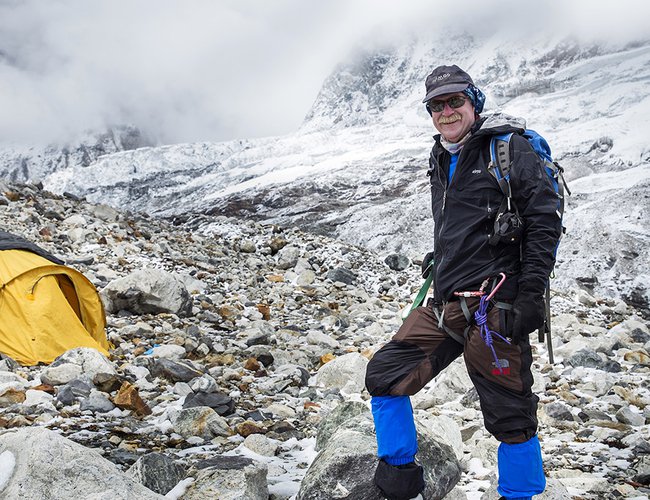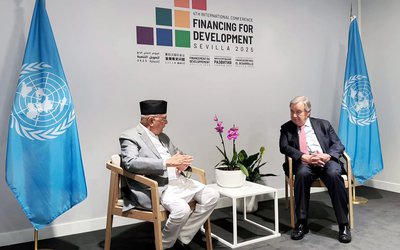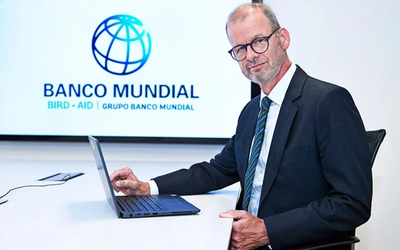
As I prepare for my departure from my position of Director General, I would like to take this opportunity to reflect on my time at ICIMOD over the last 9 years – the progress made and challenges ahead. It is difficult to cover everything here, so I’d like to also refer our readers also to a reflective piece I had written with Dr. Eklabya Sharma, who has served ICIMOD in such a dedicated way, most recently as our Deputy Director General. When I came to ICIMOD, I found it a vibrant institute, a growing voice for mountains, and an organization really making a difference for mountain people – something that was a pleasure to build on. Working together with our Board of Governors and ICIMOD’s many stakeholders, one of my first tasks was to lead a process to develop a strategic framework that would address many of the challenges of the HKH: meeting the SDGs, addressing climate change, and addressing regional issues by bringing countries together, and doing this in a way that recognizes the uniqueness of mountains.Link
While there are always more results to achieve, I am happy to acknowledge that through the hard work of so many colleagues and partners, we get results. Some important ones include: investments from the governments of Nepal and Bhutan in resilient mountain solutions; our work with the World Food Programme of the United Nations on early warning systems for food shortage; and NGOs like SABAH taking up the business of getting high valued mountain products to the market. In these results, we are seeing the impacts of our work in building resilience and poverty. We have made a difference in income for poor people reaching one million people directly and more than 10 million people indirectly through policy and scaling up efforts. We have evidence that even further investments – more than 30 million dollars – have been leveraged based on our work, although that is a very conservative estimate. There is more to be done in this area, and my wish is that Green Climate Fund and other such mechanisms would better engage more regional work and better recognize the critically important role of knowledge and innovation.
Partnerships are an important way that we make influence and outscale our work, and an important means for us to co-create knowledge. With our impressive array of partners, we have developed many effective networks across the region and have long term relations with partners. We estimate that we have 300 staff, and also 300 partners where we have some relationship. The Himalayan University Consortium, for instance includes more than 80 universities, we also have a cryosphere knowledge hub bringing regional and global expertise to the HKH, the Koshi Basin DRR hub, have recently started REEECH, and are expanding our work with the private sector such as developing a hub for mountain entrepreneurs. In our field work across the HKH, we engage a vast number of different mountain communities, and often bring them together for exchanging information. We have facilitated cross border exchanges between communities, and our work to preserve the important yak herding culture in the region stands out as example.
The global recognition of this region is increasing and that is important since the HKH is the pulse of the planet. What happens here can be felt around the world and when this pulse is healthy, the planet is healthy. We have long held the position that HKH mountains are a global resource and important for water, energy, cultural diversity, natural beauty and biodiversity. Yet we also realize that the HKH remains a distant and less immediate concern for many people around the world. We have sought to shift that perspective, through highlighting the severe climate change and pollution impacts on the HKH mountains and by emphasizing that mountain people themselves contribute minimally to these global problems. Rather, they carry unequal global burdens, face disintegration of their unique cultures and undervaluation of their indigenous knowledge. We have brought attention to the mountains through amplifying these issues on the global stage, whether it is through assessments like IPCC or IPBES, or involvement in global process like UNFCCC or CBD; or through our regional HKH Assessment which has reached scientists, policymakers and citizens across the globe. But we know that the HKH requires much more attention globally, and that we need more investments if the HKH mountains are to become prosperous and are to retain its youth with a range of robust livelihood options.
We realize in this region that more cooperation across countries will lead to bigger positive impact, and the costs of non-cooperation are too high. We paid a lot of attention to promoting regional cooperation through our regional programmes, by focusing on issues of common concern like climate change, disasters, biodiversity, science, and mountains themselves; and we also avoid more contentious political issues so that we can keep our status as a neutral non-political regional platform. ICIMOD is one of the very few places where countries do come together and take positive action in this region. With representation from governments of all eight of the HKH countries from the very beginning of ICIMOD’s establishment to this day, our Board of Governors is itself also a wonderful example of regional cooperation.
Since I come from a science background myself, I wanted to see ICIMOD generate more scientific knowledge and to make sure this knowledge is used. Our talented staff write articles, which has earned us a seat at the table for many important discussions, including most recently IPCC and IPBES. This has put us in a great position to work at the science-policy-practice interface in a constructive way. I am pleased that now we are involved in policy discussions – with NAP formulations in Nepal, with Niti Ayog in India, or bringing mountains into the agriculture picture in Pakistan and Bangladesh, or ecotourism in Myanmar. In addition, we use the scientific evidence generated with ground-based partners and communities on innovations like mountain resilient agriculture, reviving springs, brick kiln technology, and flood early warning system.
I take pride that we do work across India, China and Nepal in our Kailash landscape, and that we work constructively on the Upper Indus basin crossing India, China, Pakistan and Afghanistan. There are so many examples in our regional programmes where we work across borders and HUC has taken great strides bringing academics together in the region to focus on mountains. The HKH Assessment process brought scientists from across borders together to address important mountain policy issues, and to develop an HKH Call to Action to bring science to practice. Great momentum has been built for the HKH Call to Action and we’re excited about the direction its taking both towards an 8 country science-policy forum for joint evidence-based discussion on mountains and towards a potential platform like an Arctic Council or Alpine Convention for the HKH mountains. I am pleased that our plans for a Ministerial Summit will take place on the 15th of October, and our hope is that will evolve into an important regional platform where important mountain discussions can take place. ICIMOD would be in a position to enrich this platform with our knowledge and practices.
I also take pride in the ways that we’ve been able to focus our work on gender. We’ve learned a lot and made a lot of progress in this area with our strong gender team and putting in place gender action plans looking both inward at the organization, and outward to our work.
Looking forward, we have many challenges – we are now in the COVID-19 age, but the climate crisis has not gone away, and reaching the SDGs has gotten off track. We recently released a policy paper on the impacts of COVID-19. In the document we recommend actions for recovery and point out that those actions should also enable sustainable mountain development: green jobs around sustainable energy and mountain agriculture and tourism and nature based solutions that value mountain ecosystems and people. I believe that ICIMOD’s role will be even more critical in the years to come. I believe we have charted a good course that can lead us through these difficult times and I am pleased that Dr Pema Gyamtso will take the lead through these times. With your support, and all of us working together, ICIMOD will make a difference.
Director general
















